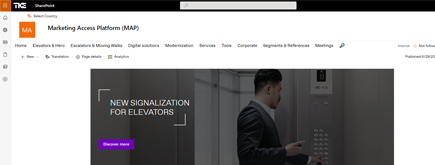How to Protect Your Data from New SharePoint Bugs
By
 Khoa Q.
Khoa Q.
Published a year ago
~2 minute read

SharePoint is a powerful and widely used platform for data management and collaboration. However, with new updates and features come new bugs and vulnerabilities that can potentially compromise your data. As a SharePoint consulting agency based in New York, we understand the importance of keeping your data safe and secure. In this article, we will discuss three key ways to protect your data from new SharePoint bugs.
The first step in protecting your data from new SharePoint bugs is to stay informed. Regularly check for updates and patches released by Microsoft for SharePoint. These updates often include fixes for known bugs and vulnerabilities. It is essential to install these updates as soon as they are released to ensure your system is up to date and secure. Additionally, stay informed about any new bugs that have been discovered and make sure to address them promptly.
Another crucial aspect of protecting your data from new SharePoint bugs is to have a robust backup and recovery plan in place. In the event of a bug or system failure, having a backup ensures that your data is not lost. It is recommended to have multiple backups, including off-site backups, for added security. Additionally, regularly test your backup and recovery process to ensure it is working correctly and your data can be restored if needed.
Lastly, it is essential to have a well-designed and secure SharePoint environment. This includes proper permission management, regular security audits, and implementing additional security measures such as firewalls and intrusion detection systems. By having a secure environment, you can prevent unauthorized access to your data and minimize the risk of new SharePoint bugs compromising your system.
In conclusion, staying informed, having a backup and recovery plan, and implementing a secure environment are key factors in protecting your data from new SharePoint bugs. As a SharePoint consulting agency, we can help you stay on top of updates, manage your backups, and ensure your environment is secure. Don't let new bugs put your data at risk, take the necessary steps to protect it today.



